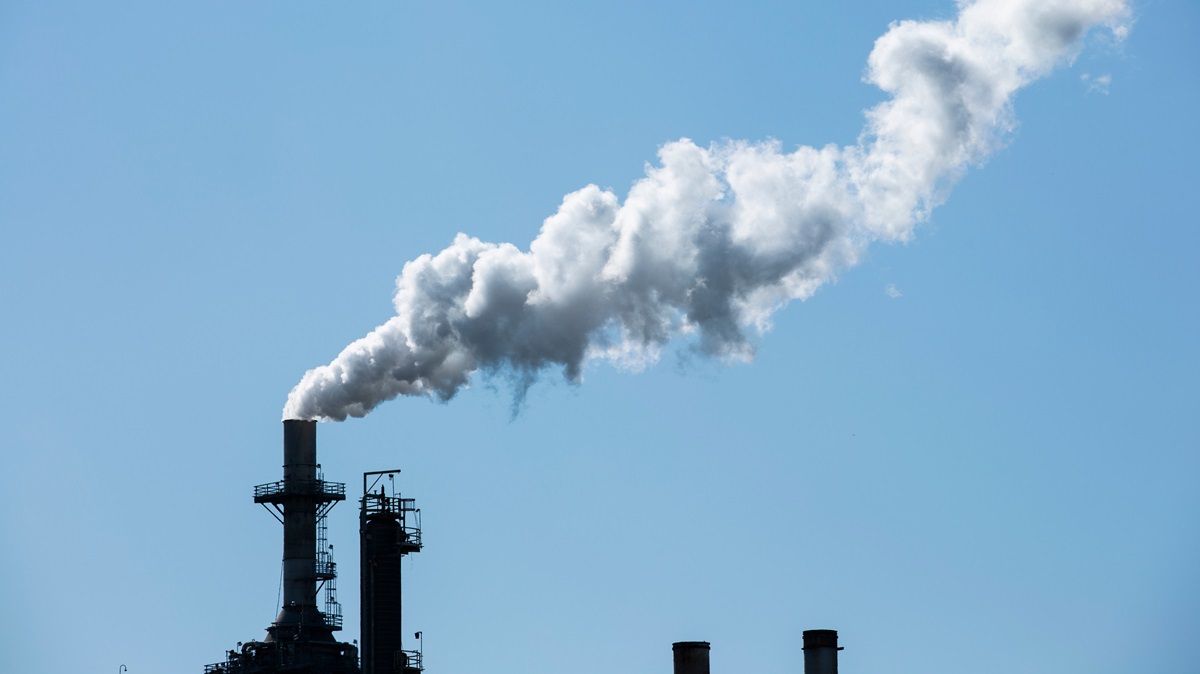The focus of the task force will be to ensure the credibility and accountability of 1.5°C-aligned net zero emissions commitments by non-state actors.

© Shutterstock/Matt Gush | An oil refinery emits greenhouse gases, one of the main causes of global warming.
Leading representatives from within the community of international regulators and experts have today announced their participation in a new task force with the aim of aligning global policy with net zero.
Launched today at the COP28 climate conference in Dubai, United Arab Emirates and building on the work of United Nations Secretary-General’s High Level Expert Group (HLEG) on Net-Zero Emissions Commitments of Non-State Entities, the Task Force on Net Zero Policy will aim to help realize its recommendations.
The focus of the task force will be to ensure the credibility and accountability of 1.5°C-aligned net zero emissions commitments by non-state actors is underpinned with coherent policies and regulatory certainty.
The announcement of the task force was made at UN Secretary-General António Guterres’s high-level meeting for non-state actors at COP28 and comes one year after the release of the HLEG’s recommendations contained in the group’s “Integrity Matters” report during last year’s COP27 in Sharm El-Sheikh, Egypt.
The HLEG report called for non-state actors to take clear and ambitious action to align their net-zero pledges and accompanying transition plans with the latest science as set out by both the UN Intergovernmental Panel on Climate Change (IPCC) and the International Energy Agency (IEA).
Now, the launch of the Task Force on Net Zero Policy marks a significant stride forward in support for the implementation of HLEG’s core recommendation, with a view to accelerating progress on the road to policy change which is additive to voluntary net zero goals.
The formation of the task force has been driven by a small group of HLEG members and its constituents include the Principles for Responsible Investment (PRI), which will serve as the Task force’s secretariat, the UN Environment Program Finance Initiative (UNEP FI), the UN Conference on Trade and Development (UNCTAD), the Vulnerable 20 (V20) Group, the International Financial Reporting Standards (IFRS) and others.
‘Catalysts for real-world change’
UNCTAD Secretary-General Rebeca Grynspan said: "The Task force on Net Zero Policy embodies our collective commitment to transforming net zero ambitions into tangible policy actions. It marks a pivotal moment in our journey towards a sustainable future, ensuring that the Integrity Matters recommendations are not just visionary statements but catalysts for real-world change.”
The task force’s ultimate goal is to establish a collaborative space that encourages the sharing of knowledge, practices, and insights among policymakers and regulators in advancing net zero aligned policy.
The task force’s focus will centre around three primary objectives:
- Establishing a collaborative space that encourages the sharing of knowledge, practices, and insights among policymakers and regulators.
- Providing research and technical support, particularly in areas which support the net zero transition in a way that is consistent with the HLEG recommendations and that also works for companies of all sizes and addresses the needs of middle and low income and the most vulnerable countries.
- Identifying opportunities within regulatory frameworks that support the implementation of the HLEG recommendations.
Supportive and effective regulatory frameworks are a core element of a systemic shift to net zero and serve to empower and facilitate private sector action on climate.
By engaging on these objectives, the task force will aim to balance the needs of relevant private sector actors with the demands and timelines of a regulatory environment geared to a net zero future, while also maintaining focus on developing nations at the forefront of climate change.



